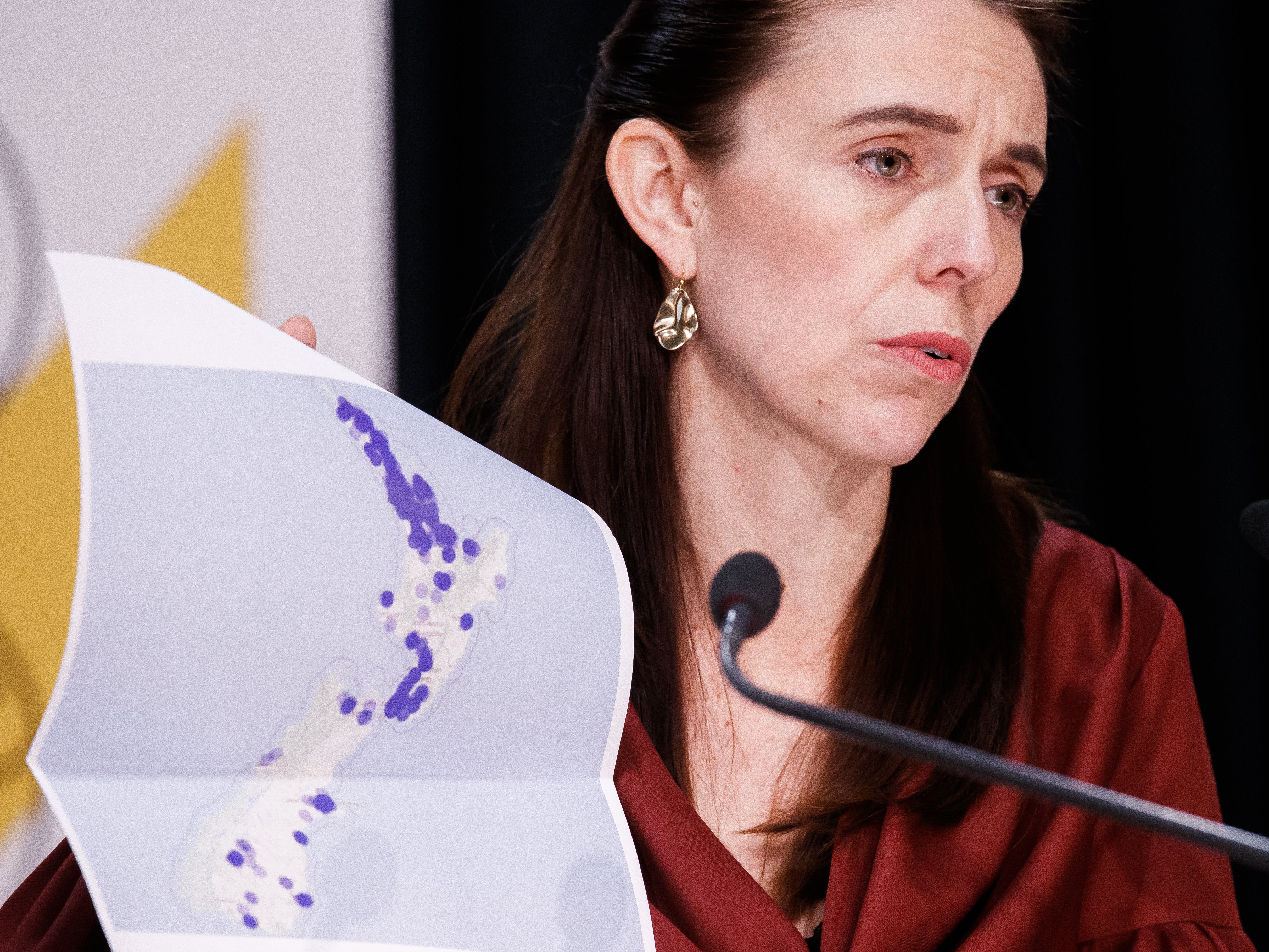Covid has left families like mine in a state of utter limbo
My eldest son was a little boy of eleven when he last saw his Kiwi grandparents. If we make it back to New Zealand next year, he’ll be 6ft and sixteen


Your support helps us to tell the story
From reproductive rights to climate change to Big Tech, The Independent is on the ground when the story is developing. Whether it's investigating the financials of Elon Musk's pro-Trump PAC or producing our latest documentary, 'The A Word', which shines a light on the American women fighting for reproductive rights, we know how important it is to parse out the facts from the messaging.
At such a critical moment in US history, we need reporters on the ground. Your donation allows us to keep sending journalists to speak to both sides of the story.
The Independent is trusted by Americans across the entire political spectrum. And unlike many other quality news outlets, we choose not to lock Americans out of our reporting and analysis with paywalls. We believe quality journalism should be available to everyone, paid for by those who can afford it.
Your support makes all the difference.In the context of recent grim headlines, it seems churlish to moan about missing another Kiwi Christmas in the sun. We New Zealanders have always looked outwards. Our diaspora is huge, with up to one million of us – of a population of just five million – estimated to live abroad. Now Covid has given migrants of all stripes something in common – a heightened sense of time passing, of so many milestones missed.
I’m lucky – I haven’t lost anyone. I haven’t missed weddings or babies or FaceTimed a last goodbye. My losses are less tragic, less tangible. A missed opportunity to visit the family farm before it was sold; my parents’ loss of real-life contact with their much-loved English grandsons. One boy misses baking Nana biscuits, a rare and tasty treat, while the other is desperate for his Kiwi Grandpa to teach him how to fish.
Both of these things are personal. I can fish and bake biscuits, but not like Nana and Grandpa. They’re also time-stamped; I’m afraid that by the time we get back, the moment might have passed. My eldest son was a little boy of eleven when he last saw his Kiwi grandparents. If we make it there next year, he’ll be 6ft and sixteen. FaceTime captures the aesthetics of a teenage boy’s growth but it can’t convey the change in his character, the person he is in real life, the space he takes up in a room.
It seems everyone has their own story. I have London-based Indian colleagues missing new babies, Pakistani friends fretting about elderly parents, an American neighbour flying alone to bury her father because her partner – not a US national – can’t enter the States.
My sister is based in Australia, a relatively short hop from our parents across the Tasman, but she might as well live as far away as me. Her son, about to start uni in New Zealand, found himself stranded with a kind-hearted family in the early days of lockdown. They were re-united by a short-lived travel bubble, which closed the day after she got back.
A New Zealand friend lost her dad last spring, in the height of our first lockdown. She couldn’t go back then and now she’s desperate to make it to his long-delayed memorial service, scheduled for December. This means securing a place in New Zealand’s Managed Isolation & Quarantine system (MIQ), one of the world’s strictest Covid border controls. When eventually released, the scramble for December places will make sourcing Glastonbury tickets look easy.
For me, easy-access travel took the edge off leaving my homeland in the early 1990s. The certainty that I could take my new, UK-based family back for Christmas, fly home for a wedding or cuddle my baby nieces and nephews, served to reassure me that I’d made the right choice to leave. I could hedge the downsides of emigrating – the lost time with parents and siblings, missing the family farm – by filling the void with regular trips home; the only barriers to entry being the airfare and my annual holiday allowance.
But for many immigrants, “going home” now involves complex regulations, expensive tests, uncertainty of return dates or – in the case of New Zealand – reserving a space in MIQ, an activity that demands long hours hunched over your laptop, clicking refresh on a facility site in the hope that a room will come up.
Choice in timing is rarely an option – you take what you can get. Before New Zealand’s current national lockdown, when the site was suspended entirely, there were no places available until November. My mum says a get-well card will suffice in the event of dire illness. That’s typical of a Kiwi, but I’d rather have the choice.
I stumbled into Heathrow in 1993, before email and the internet rendered collect calls and aerogrammes obsolete. Today we’re more connected than ever before, but migrants the world over have never felt so far from home.
Join our commenting forum
Join thought-provoking conversations, follow other Independent readers and see their replies
Comments